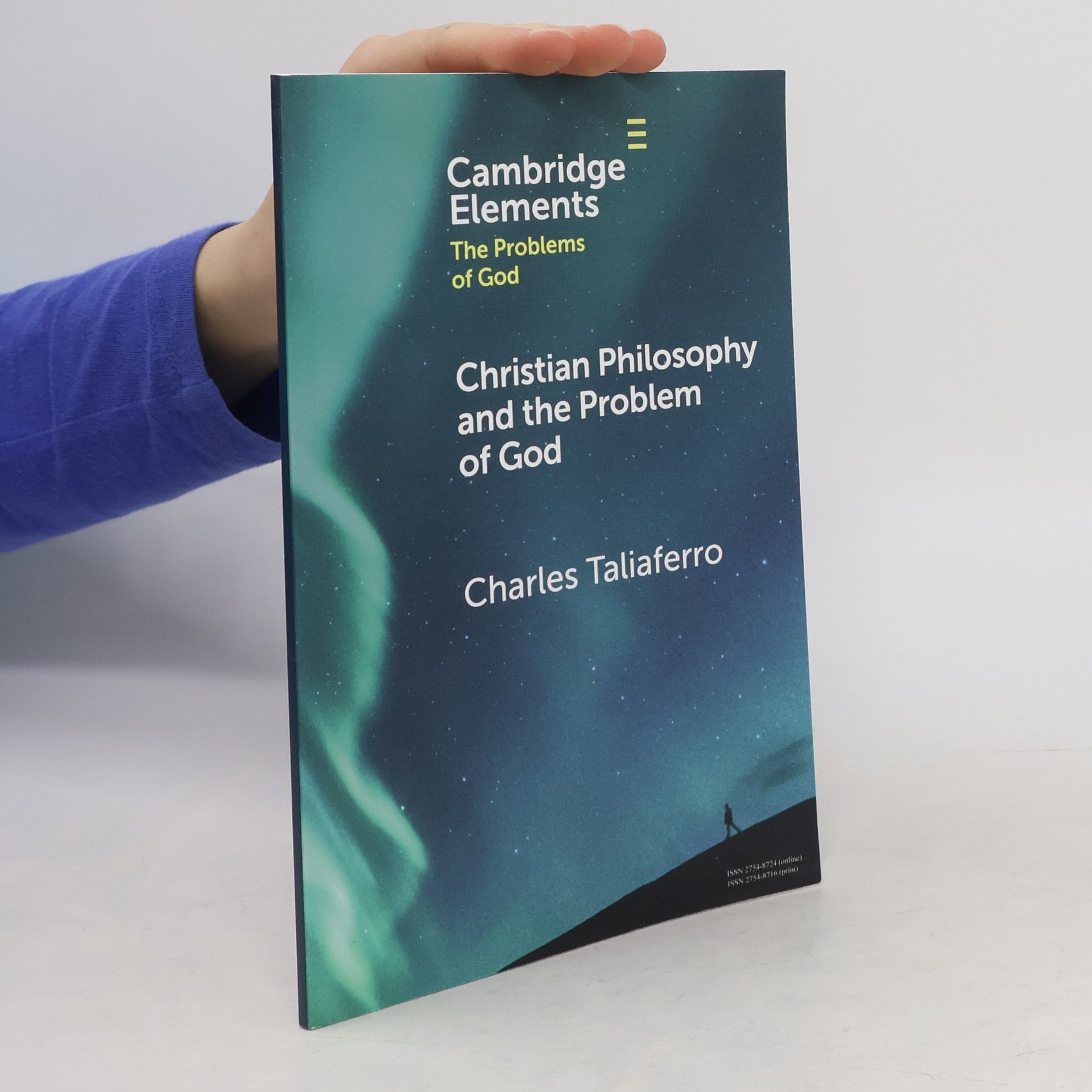The Routledge Companion to Theism
- 728 Seiten
- 26 Lesestunden






The book features fictional dialogues that explore various perspectives on the existence of God, including theism, atheism, and skepticism. Through five original debates, Taliaferro engages with historical exchanges among notable philosophers like Antony Flew, Bertrand Russell, and A. J. Ayer, presenting nuanced arguments about the nature of God. These discussions not only reflect contrasting views but also delve into the complexities of belief and doubt, making philosophical debates accessible and engaging.
What is art? Why do we find some things beautiful but not others? Is it wrong to share MP3s? These are just some of the questions explored by aesthetics, the philosophy of art. In this sweeping introduction, Charles Taliaferro skilfully guides us through different theories of art and beauty, tackling issues such as who owns art and what happens when art and morality collide. From Plato on poetry to Ringo Starr on the drums, this is a perfect introductory text for anyone interested in the fascinating questions art can raise.
Questioning why evil exists, whether God could create a stone he couldn't lift, and if the wonder of life suggests a Creator, the philosophy of religion is concerned with arguments for and against religion, and what form an immortal god (or gods) would take if in existence. This title provides an exploration of the discipline.
The book explores critical inquiries into the nature of Christian philosophy, questioning its philosophical validity and biblical alignment while addressing the challenges of discussing a transcendent God. It examines the compatibility of Christian apologetics with broader philosophical practices and considers the implications of religious diversity. The author defends the integrity of Christian philosophy while contemplating the philosophical appropriateness of invoking mystery in discussions about faith.
Exploring the theme of redemption, this book examines C. S. Lewis's portrayal of atonement through the lens of his Chronicles of Narnia. Philosopher Charles Taliaferro defends the ransom theory of atonement, highlighting its significance in understanding temptation, wrongdoing, and personal transformation. He argues that Lewis's narratives serve as more than mere children's tales; they offer profound insights into overcoming evil with God's loving self-sacrifice. This work appeals to those fascinated by Narnia and the complexities of forgiveness and reconciliation.
Examining the nature of evil through a Christian lens, this guide delves into philosophical inquiries and theological perspectives. Charles Taliaferro analyzes various forms of evil, addressing moral dilemmas and the implications of free will. The study offers insights into how evil is understood within the context of faith, encouraging readers to reflect on the interplay between good and evil in human experience. Through thoughtful exploration, it aims to provide a deeper understanding of the complexities surrounding the concept of evil.
Is ethics grounded in human nature? Yes, claims our oldest ethical theory. This Element outlines the history of natural law theory, alternative traditions, and methods along which natural law norms can be discovered. It investigates and rebuts seminal challenges to natural law methodology, and outlines and criticises the 'new' natural law theory.
A defense of aesthetic personalism that affirms an inclusive God's eye or ideal observer view of goodness and beauty, the reality and integrity of aesthetic experience, and a philosophy of art that sees some works of art as persons or person-like. Includes a practical guide to appreciating religious artwork.